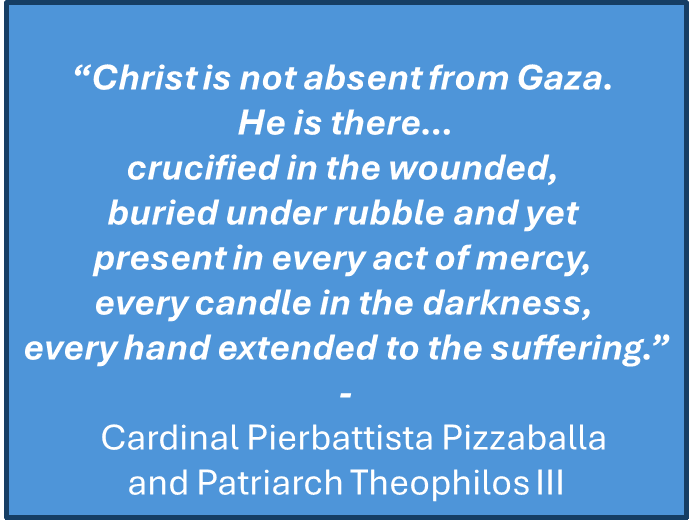The following extract from a reflection on today's feast by Fr. Enzo Del Brocco CP has an important message for all Christians, but has particular relevance for us as Vincentians. You can read the full reflection here on the Catholic Theological Union web page:
https://learn.ctu.edu/feast-of-the-exaltation-of-the-holy-cross/
There is a danger… in how we relate to the Cross. We see it in the temptation of Christian nationalism, where the Cross is used as a banner of power, identity, or exclusion. But the Cross is never a flag to wave over others. It is not a weapon to dominate, nor a tool to draw boundaries of “us” against “them.” Whenever Christians do this, we betray the very One who died on the Cross for all.
Instead, Christianity is called to be like leaven in society—quiet, small, but powerful enough to transform the whole dough. The Cross heals like the serpent in the desert: not by striking down enemies, but by drawing the gaze of the wounded and giving them life. In our world poisoned by division, violence, nationalism, and fear, the Cross offers an antidote: reconciliation, compassion, forgiveness.
To lift high the Cross today means: standing with the wounded: with refugees, the poor, the sick, the excluded; healing with mercy: countering the poison of hatred and lies with truth spoken in love; witnessing hope: refusing to let fear or ideology replace the Gospel of self-giving love.
Brothers and sisters, the Cross is not a symbol of conquest, but of healing. Not a mark of domination, but of love stronger than death. To exalt the Cross is to make visible Christ’s mercy in a broken world.
Let us lift high the Cross, not by imposing it, but by embodying it: healing wounds, building peace, forgiving enemies, and proclaiming by our lives that God so loved the world that He gave His only Son. Amen.
You can read the full reflection here on the Catholic Theological Union web page:
https://learn.ctu.edu/feast-of-the-exaltation-of-the-holy-cross/













